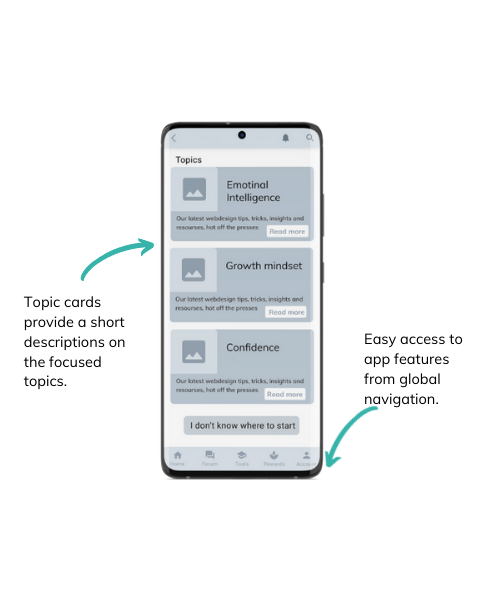Coaching App
How to help people become more resilient during the time of uncertainty that we live in?
How to live a more fulfilling life, become more empathetic and resilient in order to reach your goals no matter what. This Coaching App - responsive website, aims to arm people with self-coaching tools, a community and multiple challenges to help them grow and get them through hardship and uncertainties.
.png)











%20copy.png)
.png)







.png)
.png)


%20(1).png)

%20(1).png)
.png)


%201%20(1).png)
.png)
%201%20(2)%20(1).png)
%20(1).png)
.png)

